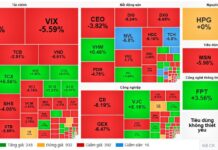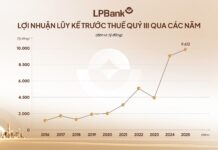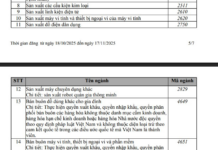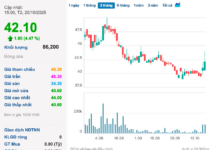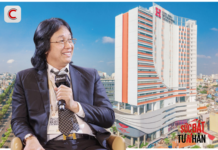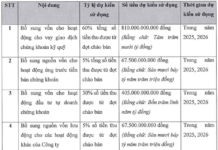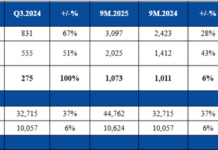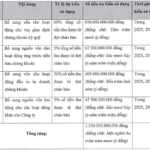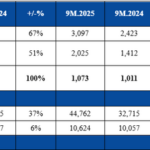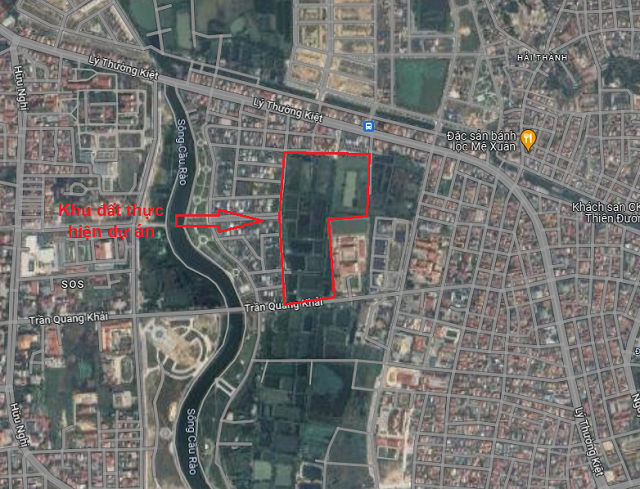
A proposed site for a new urban area in Dong Phu Ward, Dong Hoi City, Quang Binh Province. Source: Google Maps
|
The urban area is planned to span approximately 2.7 hectares in Dong Phu Ward, accommodating around 400 people. Initial estimates suggest an investment of VND 420 billion for development and VND 11 billion for compensation, support, and resettlement.
The project encompasses residential buildings, commercial facilities, and technical infrastructure, with a permitted operation period of 50 years from the date of land allocation or lease. The expected completion time frame is within 5 years from the approval of the investor selection or investment approval decision.
In terms of residential development, the project will comprise 103 new land-attached lots and a high-rise apartment building on approximately 1.6 hectares of land. It will include the construction of at least 20 three-story land-attached houses with exterior finishes and a 12-story apartment building with approximately 210 units.
Additionally, 83 land lots will be transferred to individuals for self-construction of houses following approved designs, after the complete investment in technical infrastructure and compliance with current regulations.
For commercial and service facilities, a five-story building with a floor area of over 2,000 square meters is planned for construction on the designated land.
The detailed construction planning at a scale of 1/500 for the complex urban area north of the Central Park in Dong Hoi City was approved by the Quang Binh Provincial People’s Committee in late 2021.
A Young Company Led by a 1999-born Director
To undertake this project, Dong Hoi Central Park North Investment Company must possess a minimum capital ownership of VND 87 billion and experience in executing a project in the field of urban areas, commercial housing, and office buildings. They can participate as an investing contributor or as a main contractor.
If contributing capital, the company must have previously completed or substantially completed a project within the last 7 years, with a minimum total investment of VND 216 billion, of which the investor has contributed at least VND 44 billion.
Alternatively, if assuming the role of the main construction contractor, the company only needs to have completed or substantially completed a project within the last 5 years, with a minimum value of VND 126 billion.
Dong Hoi Central Park North Investment Joint Stock Company was established on April 4, 2024, just over a month ago, in Dong Hoi City, Quang Binh Province. Its primary business activities include real estate trading and the use of land ownership, usufruct, or lease, with a charter capital of VND 88 billion, barely meeting the minimum capital requirement for the urban area project.
Behind this month-old company are two organizations: Duy Thinh Construction Consulting Company Limited (holding 82%) and BG Investment and Management Company Limited (14.75%). The remaining shares belong to Mr. Tran Cong Thang (3.25%). Mr. Thang, born in 1999, serves as the Director and legal representative of the company.
According to our research, Duy Thinh Company was established in 2011 in Bo Trach District, Quang Binh Province, specializing in architecture and technical consulting related to construction supervision of civil, industrial, and technical infrastructure projects, as well as project management.
In early 2018, Mr. Phan Ngoc Linh (1989) replaced Mr. Pham Viet Phuong (1988) as the Director and legal representative. At that time, the company’s charter capital was VND 10 billion, contributed by Mr. Pham Van Tien (80%) and Mr. Phuong (20%).
In July 2018, the capital was increased to VND 400 billion, but the individual names and ownership ratios remained unchanged. A year later, Mr. Nguyen Manh Hung (1986) replaced Mr. Tien as a capital contributor.
As of May 2024, Duy Thinh Company has increased its charter capital to VND 600 billion, with Mr. Linh continuing as the Director and legal representative.
The capital-contributing partner, BG Investment and Management Company, is also a new entity. Established in late 2023, it is located in the same town as Duy Thinh Company and registered for leasing machinery, equipment, and other tangible equipment without operators.
Initially owned by Ms. Pham Thi Can (1960), the ownership was transferred to Mr. Nguyen Van Tuan (1995) earlier this year, while Mr. Tran Cong Thang remained the Director and legal representative. The charter capital of BG Investment and Management Company has increased from VND 100 billion to VND 150 billion in less than six months.
Not long ago, the company also changed its business line to wholesale trading of other construction materials and equipment. A common denominator among the individuals associated with these companies is that they all have contact addresses in Quang Binh Province.
Two years ago, a consortium led by Duy Thinh Company won a VND 132 billion construction package for a project on the connecting road from the coastal road to Ho Chi Minh Road, East Branch, in Bo Trach District. Over the past five years, the company has been publicly awarded approximately 40 packages worth more than VND 566 billion by the Project Management Unit for Investment and Construction and Land Development Fund of Bo Trach District.
In September 2023, the Quang Binh Provincial People’s Committee issued a decision to extend the land use term for Duy Thinh Company due to a delay in the progress of their company headquarters project in Trung Trach, Bo Trach District, Quang Binh Province, covering an area of over 5,444 square meters. The company had been granted leased land by the state to implement the project, but the land use progress was 24 months behind schedule compared to the timeline specified in the investment project.

